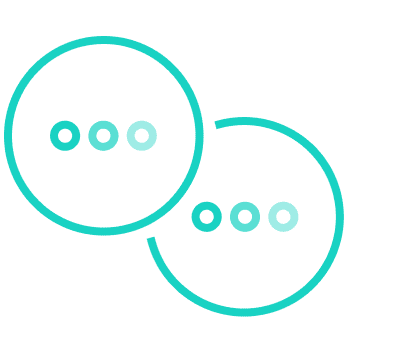The talent acquisition (TA) landscape is evolving faster than ever. As businesses grapple with the complexities of an increasingly competitive and unpredictable world, the old ways of recruiting are no longer enough. Today’s organisations need more than transactional hiring solutions - they need strategic partners capable of creating talent ecosystems.
Since its inception, recruitment process outsourcing (RPO) has continuously adapted to meet the changing needs of employers. What began as a cost-saving measure focused on efficiency and enabling process standardisation, has matured into something far more sophisticated. Over the decades, RPO has moved from a basic model that delivers core recruitment functions like sourcing and screening to integrating employer branding, advanced analytics, and workforce planning.
Yet, it’s been said, even the most advanced models of the past decade, are falling short of today’s requirements. A model built on integrated technology ecosystems with advanced analytics and market intelligence is valuable, but not enough. As the workforce becomes more diverse and the demand for specialised skills intensifies in several sectors, organisations need something that goes beyond integration.
Transactional recruitment is not enough. Organisations using RPO expect much more strategic support, expansive use of data, and tech stacks beyond the hygiene solution offered by an applicant tracking system (ATS). They require comprehensive talent strategies that leverage cutting-edge technologies and data-driven insights to attract, engage, and retain top talent. This includes predictive analytics to forecast hiring needs, AI-driven tools to enhance candidate experience, and robust platforms that facilitate seamless collaboration across HR functions. In essence, RPO must evolve to become a holistic talent partner, providing end-to-end solutions that drive business success in a rapidly changing world.
Next-gen RPO
Rather than providing discrete services, new wave RPOs need to offer a holistic framework that bring together technology, intelligence, strategy, and partnership in a cohesive ecosystem. For RPO to truly progress as an innovative, it needs to be built on the idea that talent acquisition must be adaptable, intelligent, and seamlessly integrated with broader business objectives.
Organisations that adopt RPOs are looking for value-add, and layering advisory services alongside a partnership is a great way of doing this. At Reed Talent Solutions we’ve been offering talent advisory services including salary and reward benchmarking, employee value proposition, diversity, equity and inclusion, employee engagement and candidate assessment services as standalone solutions as well as an extension to our RPO services for over 20 years. As previously mentioned, being transactional alone will no longer cut it, RPO must be an agile, strategic enabler. Those delivering RPO must act as strategic counsellors, embedding consultative expertise directly into the recruitment process. This allows them to align talent acquisition with broader business transformation goals, making the TA function a genuine driver of growth and innovation.
To fully progress in the world of RPO, you must embrace integrated technology. Gone are the days of siloed systems and disconnected platforms. Today’s recruitment processes must incorporate everything from AI-driven candidate engagement tools to advanced robotic process automation (RPA) to enhance efficiency. The technology needs to go one step further than simply ‘improving’ a process - it must create a seamless candidate experience that attracts, engages, and retains.
Alongside technology, providers should be guided by intelligence, this means leveraging data in a way that goes far beyond traditional recruitment analytics. Predictive modelling, skills intelligence, and integrated data platforms enable innovative talent leaders to anticipate skills gaps, forecast hiring trends, and design strategies that are truly forward-thinking. The days of reactive recruitment on its own are over - intelligence-driven hiring is the new standard.
Flexible solutions allow organisations to deploy modular RPO solutions that can scale up or down depending on immediate needs. In today’s volatile business environment, flexibility isn’t a luxury, it's a necessity. Companies need the ability to pivot their hiring efforts quickly, responding to sudden shifts in demand without committing to rigid, long-term contracts.
It can be argued that perhaps the most compelling aspect of future generation recruitment process outsourcing is the concept of expanded talent channels. With skills shortages continuing to plague a high number of sectors, talent acquisition professionals need to seamlessly integrate diverse channels to build a resilient, future-ready workforce. To build this talent pool, organisations need to optimise their approach and consider a range of options including apprenticeships, internships, upskilling, reskilling, and recruit, train, deploy programmes. Long gone are the days of simply evaluating people on traditional parameters of education, background and experience, instead it’s imperative that abilities and competencies take centre stage.
Next-gen talent leaders: what success looks like
The role of talent leaders – both in-house and in an RPO – is shifting, and there’s a profound transformation in how TA professionals need to approach their work. They have always been instrumental in driving recruitment strategy, but their focus has often been limited to efficiency, employer branding, and candidate experience.
In the ever-changing TA environment, talent leaders must think bigger. They are expected to multi-task, weaving together complex systems of technology, data, and human expertise into something that drives real business value. Their role is no longer just about filling vacancies - it’s about designing entire talent ecosystems that can adapt to whatever the future may bring.
This evolution requires a new mindset. It’s therefore important that upskilling TA leaders takes priority, allowing them to be fluent in analytics, capable of turning raw data into actionable insights. They must be tech-savvy, understanding how AI and automation can enhance efficiency without compromising the human touch. Most importantly, those tasked with the role must be strategic thinkers, aligning talent acquisition initiatives with broader business objectives.
And while that may sound like a lot to take on, the benefits are undeniable. Organisations that embrace these changes will be best placed to navigate the complexities of a rapidly changing global talent market. They will have the tools, insights, and partnerships necessary to turn talent acquisition into a genuine competitive advantage.
Keeping up in an ever-changing world
Progressing RPO requires a comprehensive framework that addresses every aspect of the talent acquisition process.
The solution must be scalable, modular, and capable of integrating AI, analytics, and automation. The people involved must be empowered to act as strategic enablers, combining technology and data to enhance efficiency. Processes need to be agile, continuously adapting to changing business needs. And partnerships must be robust, involving collaboration with technology providers, advisory firms, and even external talent channels.
For talent acquisition leaders, the message is clear: the world has changed, and talent acquisition needs to change with it. Now is the time to embrace change. Not just to keep pace with the competition, but to prepare for what lies ahead.
Get in touch with one of our experts today if you are looking to enhance an existing RPO or want to find out how an RPO could help address your talent challenges.





